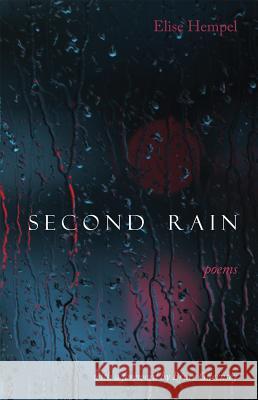Second Rain » książka
Second Rain
ISBN-13: 9781927409732 / Angielski / Miękka / 2016 / 76 str.
Poetry. Finalist for the 2015 Able Muse Book Award. In SECOND RAIN, Elise Hempel gleans anecdotes of uncommon poignancy from the seemingly commonplace, and crafts them into memorable poems. Family settings and the world of nature are captured and shaped into insight through the poet's discerning eyes: here an only child in her room with a lone and captive katydid; here a feisty grandmother in the hospital; here a father fond of household projects, building two swimming pools, a basketball hoop in the driveway, and transforming the yard into a skating rink. This inspirational debut collection, charged with nostalgia and longing, is fittingly finalist in the 2015 Able Muse Book Award.
"The apparently domestic poems in SECOND RAIN (poems about family, gardening, dogs, birds, and a few memorable tigers) deliver enough controlled intensity 'to shake the trees all down.' A special gift of Elise Hempel's art is to evoke and suggest passions without spelling them out; we readers get to unscramble the anagram, to find the ache and our own corresponding ache beneath the poised surface." Rachel Hadas
" Elise Hempel's] curiosity and insights singled her out as special, but her ability to shape her feelings into words remains what I find most unique... From the opening title poem on, this is a book about the often ignored, simple gifts that come to us, like 'the second rain that comes / when the first is over, ' that 'gentle scattering of drops' the breeze shakes down from the trees and 'briefly blesses you.'" Bruce Guernsey
"From the title poem on, Elise Hempel's SECOND RAIN matches form with feeling, delivering insights that seem at once inevitable and necessary. Her sense of the sonnet its grace and shape lends quiet force to what's remembered and observed, from a pet shop crow to memories of now-absent loved ones, mother- daughter conflicts to the ambiguities of language itself. Like the flock of geese described in one poem here, Hempel's collection succeeds in many 'different keys.'" James Scruton"











